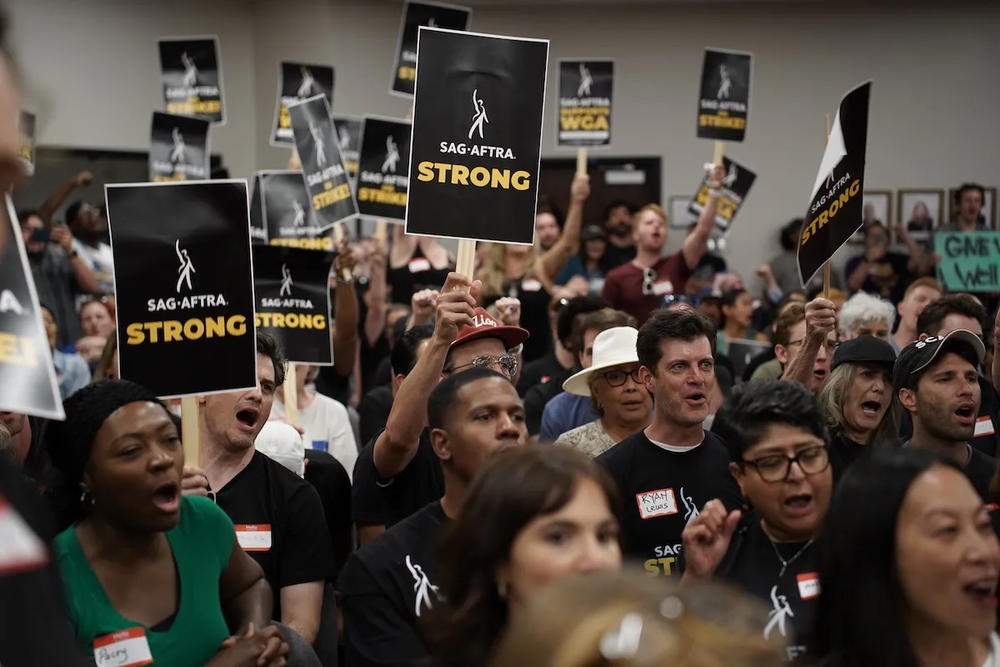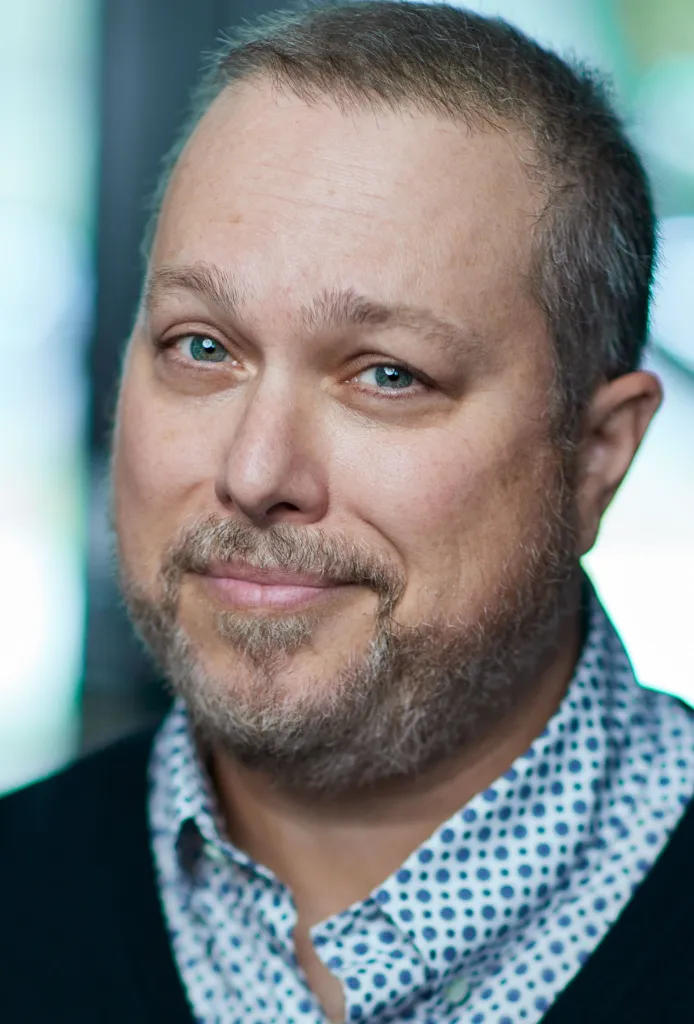
Caption
A photo from the Atlanta rally on National Day of Solidarity to show support for SAG-AFTRA and WGA
Credit: Kurt Yue Photography
|Updated: September 4, 2023 8:05 AM

A photo from the Atlanta rally on National Day of Solidarity to show support for SAG-AFTRA and WGA
On July 14, members of the Screen Actors Guild-American Federation of Television and Radio Artists (SAG-AFTRA) went on strike, joining the Writers Guild of America (WGA) for a historic moment that marks the first time both guilds have been on strike together since 1960.
Many things have changed since then, including the fact that Georgia is a major player in the film and television landscape. Georgia is the third largest state for production behind California and New York, and the strike has effectively ended production as writers and actors continue to fight for a fair contract.
“We now have close to 4,000 members here in Georgia. We’ve seen extreme growth over the last 15 years since the advent of the tax incentives,” said Atlanta Local member Mike Pniewski. “We’re not an also-ran or a regional market … We are one of the major players in the industry.”
On Aug. 22, thousands of local writers, actors, and other workers gathered in Atlanta for National Union Solidarity Day to show support for SAG-AFTRA and WGA. Pniewski, along with Atlanta Local SAG-AFTRA President Eric Goins – both of whom serve on the national negotiating committee – helped organize the event.
“It was designed to be a day to not only rally around the ideas and causes that all of us are fighting for, but also to say thank you to each other for the solidarity that we’ve shown so far during the strike,” Goins said.
Liz Shuler, the president of the American Federation of Labor and Congress of Industrial Organizations (AFL-CIO), also attended and spoke at the rally. The AFL-CIO is a federation of a multitude of labor unions, both within and outside Hollywood.
“To have the national president of the organization that oversees all those labor unions was incredibly significant,” Pniewski said.

Atlanta Local SAG-AFTRA President Eric Goins
Pniewski and Goins discussed with Rough Draft Atlanta the finer points of SAG-AFTRA’s proposals to the studios, represented by the Alliance of Motion Picture and Television Producers (AMPTP). Some of those are guardrails around the casting process to make it less burdensome and financially draining, the threat of artificial intelligence and how revenue can be shared equitably in the age of streaming.
“It has become harder and harder and harder for our members to make a sustainable life in this industry,” Goins said. “With the advent of streaming and the way that the business model has changed over the last few years, the opportunities for revenue and for financial security have gone away. The spigot has been turned off.”
Before the advent of streaming, Pniewski said, the revenue stream for one episode of television was much more varied. It would premiere, and then maybe a rerun would air once or twice. Maybe the episode would get sold overseas to a foreign market. Maybe the television show would be a hit, and DVD box sets would be sold. In the old days, he said, there were plenty of opportunities for an actor to make money over the course of a project’s lifespan.
“Nowadays, the lifespan of a project is it runs once wherever it is, and then it goes on the streamer,” Pniewski said. “And the streaming residuals are nowhere near equivalent to what actors used to make.”
One of SAG-AFTRA’s central proposals is a revenue sharing model which would allow actors to share in the revenue generated by their shows. At the time of publication, the AMPTP has rejected this proposal.
“The reason we have had to come to this place is because the companies of the AMPTP have refused to be transparent about the number of people watching each and every show on their platform,” Goins said. “We have pushed, and we have asked for that information, and they have categorically rejected it.”
AI also represents a looming threat for not just actors, but for anyone with an image they hope to protect, said both Goins and Pniewski. SAG-AFTRA is looking for actors to have control over their image, the ability to give or not give consent when a studio wants to use that image, and fair compensation for that image.
“If we let the genie get too far out of the bottle, it could get too far down the road before we could really do anything about it,” Pniewski said of artificial intelligence.
Another issue that specifically affects Georgia actors is the issue of geographical discrimination, or when members outside of film and entertainment hubs such as L.A. and New York are paid lesser rates for doing the same work. The AMPTP has rejected the union’s proposal asking for a discussion on the subject.
“We are saying the terms of our contract that we fight so hard to get should be applicable across the board to all our members, because our union is comprised of members all over the country,” Goins said. “[The AMPTP] has refused.”
In July, the AMPTP released a statement explaining its reasoning behind the rejection of specific SAG-AFTRA proposals. SAG-AFTRA has not had any negotiations with the AMPTP since a strike was called. SAG-AFTRA leadership has said publicly they are “ready at a moment’s notice” to return to the bargaining table. The AMPTP appears to be focused on reaching a deal with the WGA. That guild rejected a counteroffer from the AMPTP last week, telling members in an email that the offer was “neither nothing, nor nearly enough.”
Both Goins and Pniewski said one of the reasons they believe no deal has been reached is because studio execs like Netflix’s Ted Sarandos or Warner Bros. Discovery’s David Zaslav lack an understanding of what the day-to-day life of performers is like. Pniewski, who has served on the negotiating committee for 15 years, said that lack of understanding and compassion has not changed over his tenure. Pniewski also referenced the wage gap between those at the CEO level and those in the working class.
“David Zaslav in the past five years, for example, has made half a billion dollars,” Pniewski said. “He doesn’t make half a billion dollars without the creative product from the performers and the writers and the directors and the camera people and the people on the ground that are making these products that audiences all over the world love.”
While they might not think the mindset of studio execs has changed much, both men agreed that this time around, they don’t see a world where the unions bend before the studios.
“They truly believe that they can push us, they can squeeze us, they can belittle us, and eventually we’re going to cave, because sadly there have been times when we did,” Pniewski said. “This time is truly different. We have unity and resolve, and we have history on our side.”
This story comes to GPB through a reporting partnership with Rough Draft Atlanta.